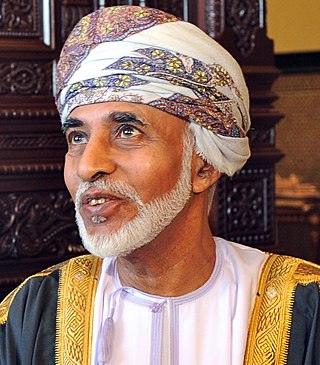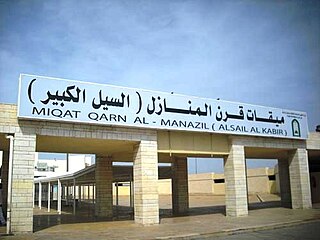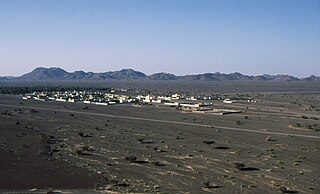
Oman, officially the Sultanate of Oman, is a country in West Asia. It is located on the southeastern coast of the Arabian Peninsula, and overlooks the mouth of the Persian Gulf. It shares land borders with Saudi Arabia, the United Arab Emirates, and Yemen, while sharing maritime borders with Iran and Pakistan. The capital and largest city is Muscat. Oman has a population of nearly 4.7 million and is the 124th most-populous country. The coast faces the Arabian Sea on the southeast, and the Gulf of Oman on the northeast. The Madha and Musandam exclaves are surrounded by United Arab Emirates on their land borders, with the Strait of Hormuz and the Gulf of Oman forming Musandam's coastal boundaries.

Muscat is the capital and most populated city in Oman. It is the seat of the Governorate of Muscat. According to the National Centre for Statistics and Information (NCSI), the total population of Muscat Governorate was 1.72 million as of September 2022. The metropolitan area spans approximately 3,500 km2 (1,400 sq mi) and includes six provinces called wilayats, making it the largest city in the Arabian Peninsula by area. Known since the early 1st century AD as an important trading port between the west and the east, Muscat was ruled by various indigenous tribes as well as foreign powers such as the Persians, the Portuguese Empire and the Ottoman Empire at various points in its history. A regional military power in the 18th century, Muscat's influence extended as far as East Africa and Zanzibar. As an important port-town in the Gulf of Oman, Muscat attracted foreign traders and settlers such as the Persians, Balochs and Sindhis. Since the accession of Qaboos bin Said as Sultan of Oman in 1970, Muscat has experienced rapid infrastructural development that has led to the growth of a vibrant economy and a multi-ethnic society. Muscat is termed as a Beta - Global City by the Globalization and World Cities Research Network.

Qaboos bin Said Al Said was Sultan of Oman from 23 July 1970 until his death in 2020. A fifteenth-generation descendant of the founder of the House of Al Said, he was the longest-serving leader in the Middle East and Arab world at the time of his death, having ruled for almost half a century.

Nizwa is the largest city in Ad Dakhiliyah Region in Oman and was the capital of Oman proper. Nizwa is about 140 km (87 mi) from the Omani capital Muscat. The population is estimated at around 83,544 people.

The Sultanate of Muscat and Oman, also known briefly as the State of Muscat and Oman during the rule of Taimur bin Feisal, was a sovereign state that encompassed the present-day Sultanate of Oman and parts of present-day United Arab Emirates and Pakistan, in the second half of the 19th century and 20th century. Ruled by the Busaid dynasty, it was established as a result of the partition of the Omani Empire upon the death of its last ruler Said bin Sultan. The Sultanate transitioned into a new form of government after the palace coup of 23 July 1970 in which the sultan Said bin Taimur was immediately deposed in favor of his son Qaboos bin Said.

The Royal Army of Oman is the ground forces component of the Sultan of Oman's Armed Forces. It was founded in 1907 as the Muscat Garrison. It has a current strength of 35,000 personnel.

The following outline is provided as an overview of and topical guide to Oman:

The following outline is provided as an overview of and topical guide to Saudi Arabia:

Bahrain has the oldest public education system in the Arabian Peninsula. The system was established in 1932 when the Bahraini government assumed responsibility for operating two pre-existing primary public schools for boys. Subsequently, separate girls' schools and various universities were established in the 20th century. According to data from the 2010 census, the literacy rate of Bahrain stands at 94.6%. As of 2016, education expenditure accounts for 2.7% of Bahrain's GDP.

This page list topics related to Oman.
The Trucial Oman Scouts was a paramilitary force that the British raised in 1951 as the Trucial Oman Levies, to serve in the Trucial States. In 1956, the Levies were renamed the Trucial Oman Scouts. In 1971, upon the formation of the United Arab Emirates (UAE), the scouts were handed to the United Arab Emirate's government and formed its Federal Union Defence Force (UDF) which is today renamed as the United Arab Emirates Armed Forces.

As-Sayl Al-Kabīr is a village in Makkah Region, western Saudi Arabia, which is located some distance from the city of Taif. Abdullah ibn Abbas narrated that his cousin, the Islamic Prophet Muhammad, had fixed Qarn al-Manāzil as the miqat for the people of Najd. It has also been used as a miqat by people coming from places like Oman, the U.A.E., Pakistan, Malaysia and Australia.

Al Bustān is a village in Muscat, in eastern Oman.. Its cemetery was used during the Samad Late Iron Age.

The Royal Oman Police (ROP), also known as Oman Police, is the main law and order agency for the Sultanate of Oman. It maintains a helicopter fleet and also carries on the duties of safeguarding the long Omani coastline.

Women in Oman now pursue careers and professional training, moving from their previous and traditional role at home to the public sphere. In Oman, 17 October is celebrated every year as the Omani Women's Day with various pro-female events.

The Foreign Ministry is the government body in the Sultanate of Oman responsible for organising and directing Oman's relations with other countries and with regional and international organisations.

The Royal Guard of Oman (RGO) is the royal guard of the Sultan of Oman. It is a separate service within the Sultan's Armed Forces (SAF) and although equipped to carry out land defense operations, it is not part of the Royal Army of Oman. The RGO is a personal security and ceremonial unit responsible for the protection of the Sultan and other senior members of the royal family.

Haitham bin Tariq Al Said is Sultan and Prime Minister of Oman.

al-Moyassar is an archaeological zone in the Sharqiyah province, Oman where the remains of all pre-Islamic periods came to light. The geographic definition has changed in recent years for this irregular area which measures some 2 x 5 km. It lies directly west of the Samad oasis.
















